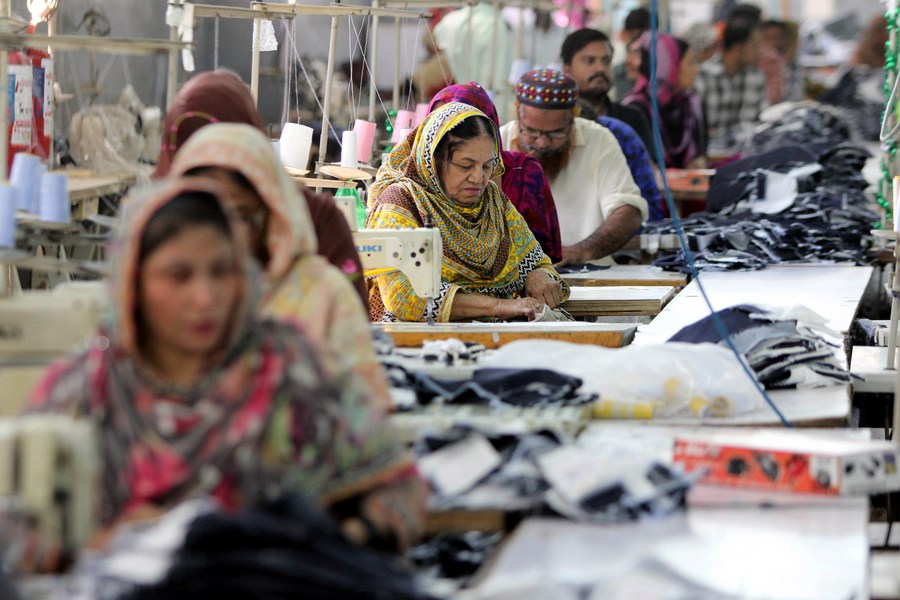Abstract : Chinese and Pakistani officials and businessmen on Tuesday discussed ways to advance business-to-business (B2B) matchmaking in textile industry under the China-Pakistan Economic Corridor (CPEC).

Arial photo taken on Aug. 5, 2019 shows the view of Sukkur-Multan Motorway in central Pakistan‘s Multan. (Xinhua/Ahmad Kamal)
Business-to-business joint ventures are intrinsic to the success of CPEC and the special economic zones, and the Pakistan’s Board of Investment will extend full support to Chinese investors for successful materialization of their projects in Pakistan, said a Pakistani official.
ISLAMABAD, April 28 (Xinhua) — Chinese and Pakistani officials and businessmen on Tuesday discussed ways to advance business-to-business (B2B) matchmaking in textile industry under the China-Pakistan Economic Corridor (CPEC).
Khashih ur Rehman, executive director general of Pakistan’s Board of Investment (BOI), said during a webinar that the event will help in advancing B2B ties under CPEC industrial cooperation.
The CPEC industrial cooperation textile B2B webinar was co-organized by BOI, China Council for International Investment Promotion (CCIIP) and China National Textile and Apparel Council (CNTAC). It was attended by senior officials and textile entrepreneurs from Pakistan and China.
“To facilitate B2B matchmaking, the BOI is working on the development of an online B2B portal which will assist potential domestic and foreign investors and serve as a one-stop database of available public and private sector investment projects,” Rehman said.
While appreciating the overwhelming support from the CNTAC and China’s Ministry of Commerce, Secretary of BOI Fareena Mazhar called for enhanced B2B matchmaking between the Pakistani and Chinese textile enterprises.

Laborers work in a garment factory in southern Pakistani port city of Karachi on Nov. 27, 2019. (Str/Xinhua)
“Owing to the sector’s financial gains, many international companies including Chinese enterprises are already operational in the country,” she said.
Project Director of the Project Management Unit of the BOI Asim Ayub said that B2B joint ventures are intrinsic to the success of CPEC and the special economic zones, and the BOI will extend full support to Chinese investors for successful materialization of their projects in Pakistan.
On the occasion, CNTAC deputy director Xu Yingxin called for enhancing industrial cooperation between China and Pakistan under CPEC, especially in the textile sector.
In addition to analyzing the textile sector of both countries and discussing the investment opportunities, notable textile companies from both sides also presented their projects requiring cooperation and held discussions for potential matchmaking. ■
About Xinhua Silk Road
Xinhua Silk Road (en.imsilkroad.com) is the Belt and Road Initiative (BRI) portal.China’s silk road economic belt and the 21st century maritime silk road website,includes BRI Policy, BRI Trade, BRI Investment, Belt and Road weekly, Know Belt and Road, and the integrated information services for the Belt and Road Initiative (BRI).
Source: China, Pakistan discuss ways to enhance B2B matchmaking in textile industry under CPEC
Comments
Post a Comment